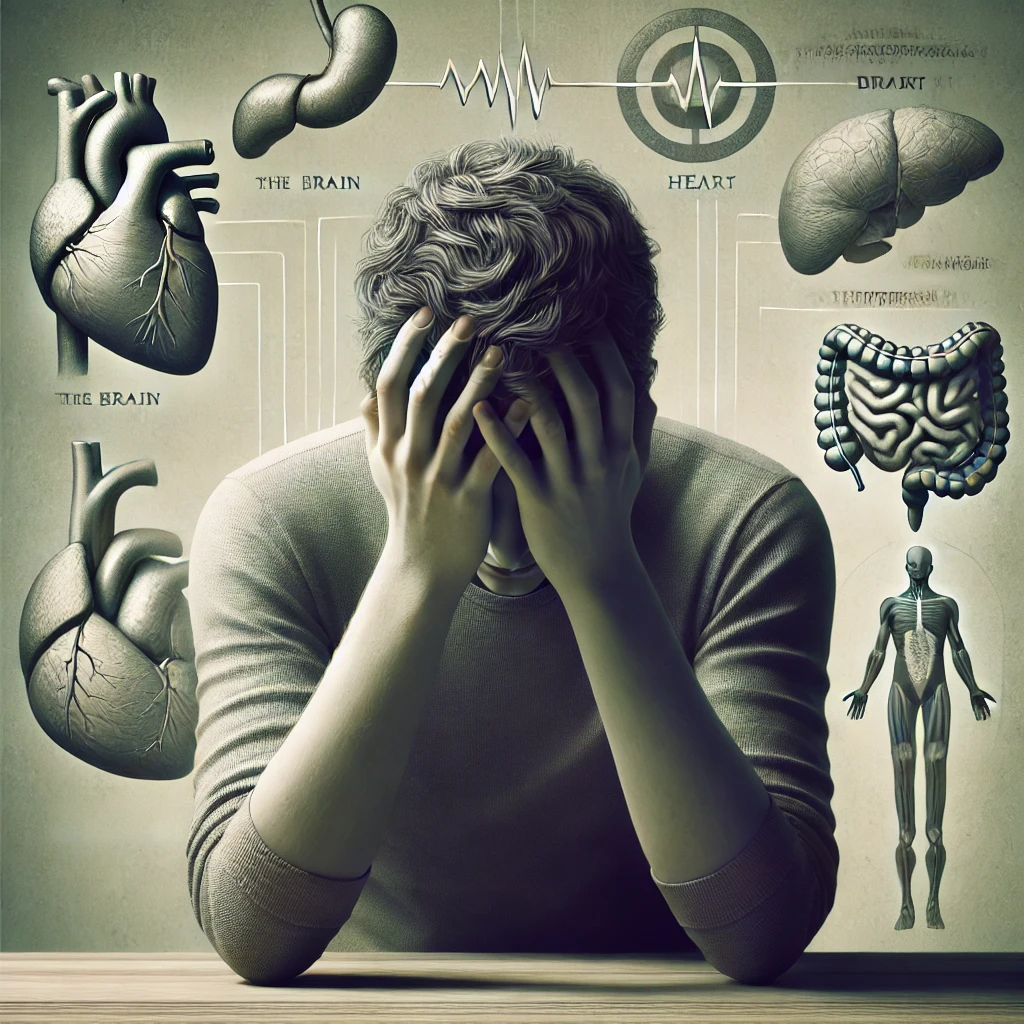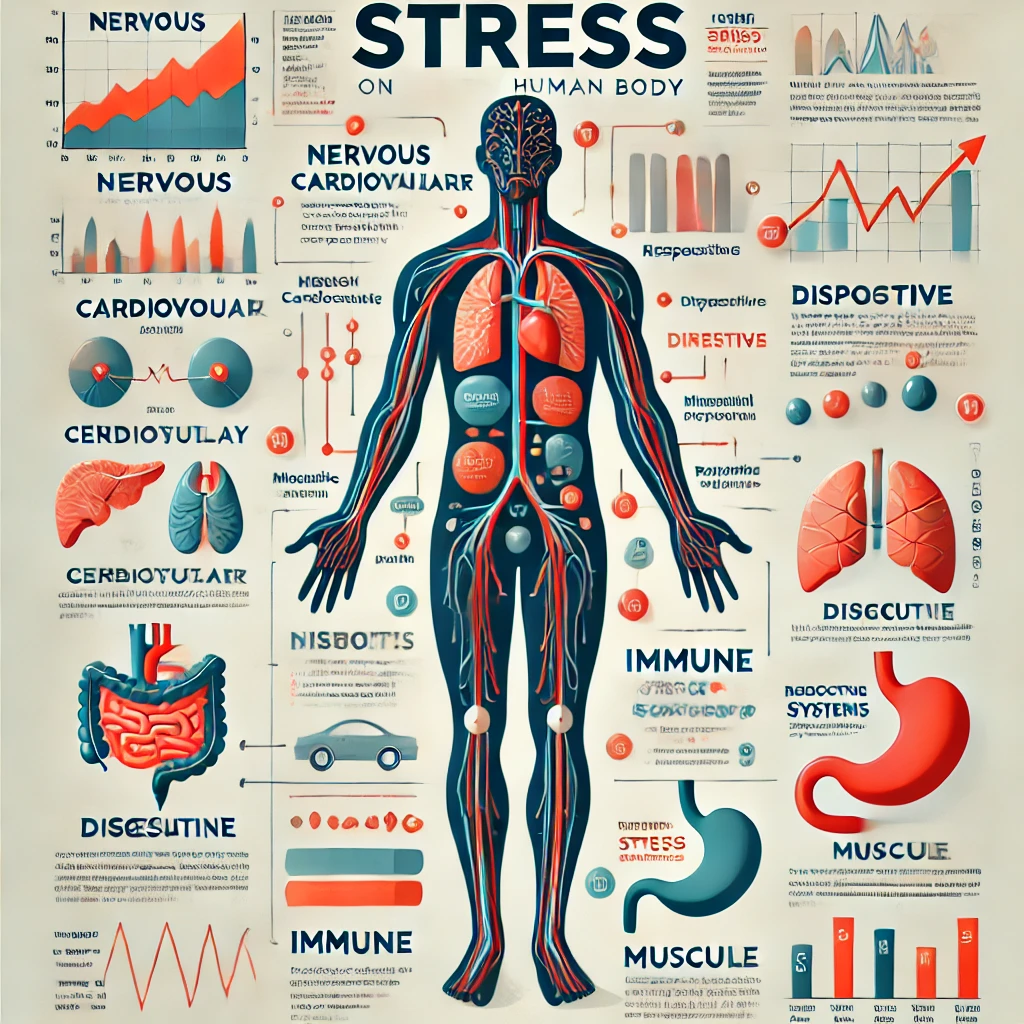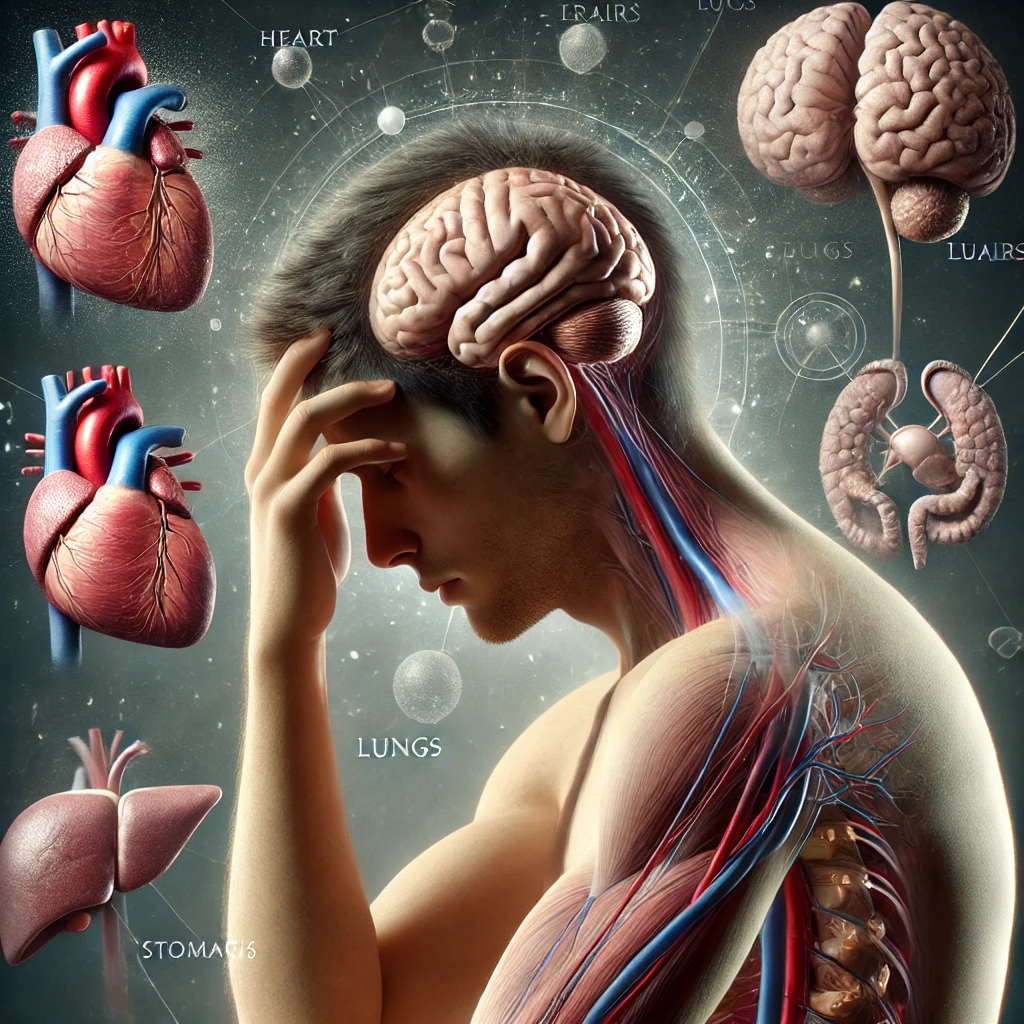Introduction
Stress is an inevitable part of life, affecting individuals across all walks of life. While short-term stress can sometimes enhance performance, chronic stress poses significant health risks. Understanding how stress impacts the body is crucial for maintaining overall well-being. This comprehensive guide delves into the physiological and psychological effects of stress and offers practical strategies for managing it effectively.

What is Stress?
Definition of Stress
Stress is the body’s natural response to perceived threats or challenges, triggering a “fight or flight” reaction that prepares the body to respond to danger.
Types of Stress
- Acute Stress: Short-term stress that arises from immediate challenges.
- Chronic Stress: Persistent stress resulting from ongoing pressures.
- Episodic Acute Stress: Frequent bouts of acute stress experienced over time.
How Stress Affects the Body
1. Nervous System
- Activation of the Sympathetic Nervous System: Triggers the release of adrenaline and cortisol.
- Impact on the Brain: Prolonged stress can impair memory, concentration, and decision-making.
- Nervous Disorders: Increased risk of anxiety and depression.
2. Cardiovascular System
- Increased Heart Rate and Blood Pressure: Continuous stress can strain the heart.
- Risk of Heart Disease: Prolonged stress is linked to hypertension and heart attacks.
- Inflammation: Stress-induced inflammation contributes to arterial damage.
3. Respiratory System
- Breathing Difficulties: Stress can cause rapid, shallow breathing.
- Aggravation of Respiratory Conditions: Exacerbates conditions like asthma and COPD.
4. Digestive System
- Altered Digestion: Stress affects nutrient absorption and digestion.
- Stomach Issues: Increased risk of ulcers, bloating, and indigestion.
- Appetite Changes: Stress can lead to overeating or loss of appetite.
5. Immune System
- Weakened Immunity: Chronic stress reduces the body’s ability to fight infections.
- Inflammatory Response: Overstimulation can lead to autoimmune diseases.
- Delayed Healing: Stress can slow the body’s natural healing processes.
6. Muscular System
- Muscle Tension: Stress causes muscles to contract, leading to stiffness and pain.
- Chronic Pain: Persistent stress may contribute to headaches and back pain.
7. Reproductive System
- Hormonal Imbalance: Stress disrupts hormone production, affecting fertility.
- Sexual Health Issues: Reduced libido and performance problems.
- Menstrual Cycle Disruptions: Irregular or painful cycles in women.
Psychological Effects of Stress
- Anxiety and Depression: Increased feelings of worry and sadness.
- Irritability and Mood Swings: Difficulty in controlling emotions.
- Cognitive Difficulties: Problems with focus, memory, and decision-making.
- Sleep Disorders: Insomnia and restless sleep.
Long-Term Health Risks Associated with Chronic Stress
- Cardiovascular Diseases: Elevated risk of heart attacks and strokes.
- Obesity and Eating Disorders: Stress-induced eating habits can lead to weight gain.
- Diabetes: Stress can increase blood sugar levels, exacerbating diabetes risk.
- Mental Health Disorders: Chronic anxiety, depression, and mood disorders.
- Digestive Problems: Persistent gastrointestinal issues.
Effective Strategies for Managing Stress
Lifestyle Changes
- Regular Exercise: Promotes relaxation and reduces cortisol levels.
- Balanced Diet: Supports overall health and stress management.
- Adequate Sleep: Essential for physical and mental recovery.
Mindfulness and Relaxation Techniques
- Meditation and Deep Breathing: Calm the mind and reduce anxiety.
- Yoga and Tai Chi: Combine physical movement with mindfulness.
- Progressive Muscle Relaxation: Helps release tension in muscles.
Social Support
- Connecting with Loved Ones: Emotional support from friends and family.
- Joining Support Groups: Shared experiences can offer comfort and understanding.
Professional Help
- Therapy and Counseling: Professional guidance to manage stress.
- Medical Intervention: For severe stress-related conditions.
Time Management and Organization
- Setting Priorities: Focus on essential tasks to avoid feeling overwhelmed.
- Taking Breaks: Regular downtime to recharge.
- Avoiding Procrastination: Helps reduce last-minute stressors.

Conclusion
Stress, while a natural part of life, can have profound effects on the body and mind when left unmanaged. Recognizing the signs of stress and adopting effective coping strategies is essential for safeguarding health and enhancing overall well-being. By implementing lifestyle changes, practicing mindfulness, and seeking support, individuals can mitigate the negative impacts of stress and lead a healthier, more balanced life.





